Culture
Nativity Epistle of His Beatitude Metropolitan Onuphry of Kiev and All Ukraine
15. January 2018 - 10:28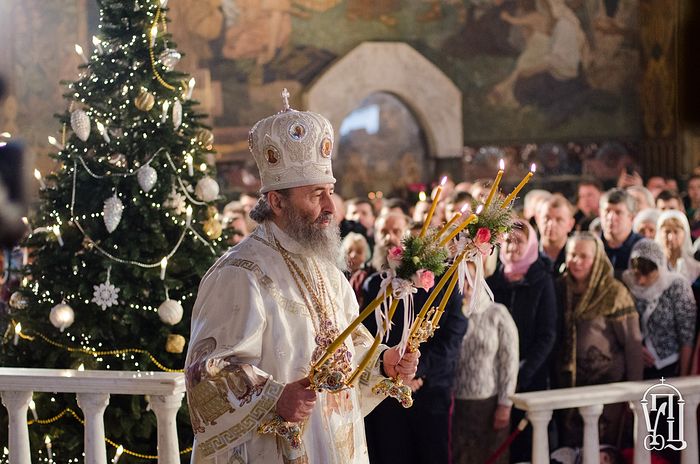 January 7, 2018
January 7, 2018
To the archpastors, pastors, monastics,
and all the faithful children of the Ukrainian Orthodox Church
I heartily congratulate all of you, God-loving bishops, reverend fathers, pious monks and nuns, dear brothers and sisters, with the great salvific feast of the Nativity in the flesh of our Lord, God, and Savior Jesus Christ.
My Life in Christ
2. January 2018 - 12:09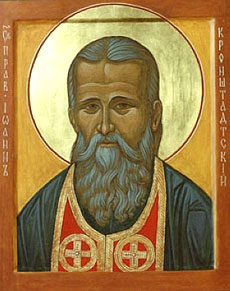 Born in 1829 from pious parents of very modest means, St. John was quick to learn the power of prayer. As a child he was a slow learner, but one night after fervently praying for God's help in his studies, he suddenly felt as if he were violently shaken, as if "the mind opened up in his head." From then on he became a good pupil, graduating at the head of his class. He went on to seminary in St. Petersburg where he began to prepare for missionary activity in Siberia and Alaska. But in a dream he saw himself as a priest in a large cathedral and soon thereafter he married and was ordained and appointed to serve in the St. Andrew Cathedral of Kronstadt--the very cathedral which had appeared in his dream. Kronstadt was a port city full of poverty, drunkenness and immorality. It was here that Father John poured out his compassionate love and began his extraordinary ministry founded on prayer. Literally thousands, including Jews and Moslems, flocked to him for spiritual and material aid and were witnesses to his God given powers of healing, spiritual discernment and prophecy. His genuine Christian love brought many to repentance and conversion and the cathedral which held up to 5,000 people was packed every day for Divine Liturgy. He died Dec. 20, 1908, and his funeral, attended by tens of thousands, conveyed that radiance of Paschal joy which constantly shone upon the face of Father John whom many affectionately called, the "Easter batiushka".
Born in 1829 from pious parents of very modest means, St. John was quick to learn the power of prayer. As a child he was a slow learner, but one night after fervently praying for God's help in his studies, he suddenly felt as if he were violently shaken, as if "the mind opened up in his head." From then on he became a good pupil, graduating at the head of his class. He went on to seminary in St. Petersburg where he began to prepare for missionary activity in Siberia and Alaska. But in a dream he saw himself as a priest in a large cathedral and soon thereafter he married and was ordained and appointed to serve in the St. Andrew Cathedral of Kronstadt--the very cathedral which had appeared in his dream. Kronstadt was a port city full of poverty, drunkenness and immorality. It was here that Father John poured out his compassionate love and began his extraordinary ministry founded on prayer. Literally thousands, including Jews and Moslems, flocked to him for spiritual and material aid and were witnesses to his God given powers of healing, spiritual discernment and prophecy. His genuine Christian love brought many to repentance and conversion and the cathedral which held up to 5,000 people was packed every day for Divine Liturgy. He died Dec. 20, 1908, and his funeral, attended by tens of thousands, conveyed that radiance of Paschal joy which constantly shone upon the face of Father John whom many affectionately called, the "Easter batiushka".
About Serbian Children’s Day, Mother’s Day, and Father’s Day
24. December 2017 - 11:30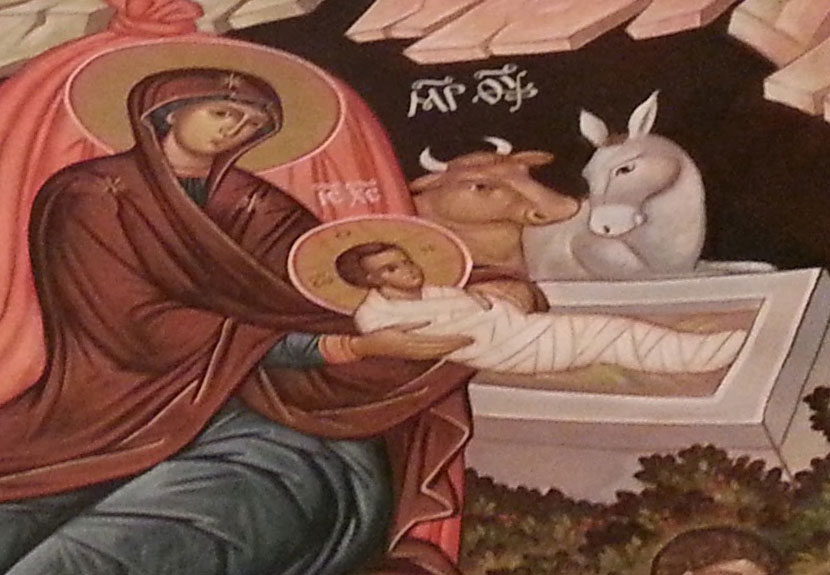 The following is from the book, “Divine Liturgy, Prayers, Catechism,” St. Sava Seminary Fund, 1979. To purchase a copy of this book, please call the St. Sava Church Office at 219-736-9191.
The following is from the book, “Divine Liturgy, Prayers, Catechism,” St. Sava Seminary Fund, 1979. To purchase a copy of this book, please call the St. Sava Church Office at 219-736-9191.
Among many national customs, the Serbs have a special one in which we REMEMBER and TIE as well as give gifts on Children’s, Mother’s, and Father’s Day.
The Church Books dedicate the two Sundays preceding Christmas to the Forefathers and Fathers, the Righteous Ones and the Prophets of the Old Testament, who awaited the coming of the Saviour, symbolically depicted Him and prophesied His Advent, but did not live to see Him.
Prophet Zephaniah
16. December 2017 - 20:12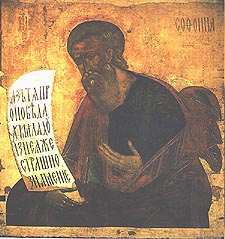 The Prophet Zephaniah (Sophonias) was a contemporary of the Prophet Jeremiah and the Prophetess Oldama. He was from the tribe of Simeon, and was the ninth of the Twelve Minor Prophets of the Old Testament. The prophet lived at the royal court, where he preached repentance and helped King Josiah eliminate idol-worship.
The Prophet Zephaniah (Sophonias) was a contemporary of the Prophet Jeremiah and the Prophetess Oldama. He was from the tribe of Simeon, and was the ninth of the Twelve Minor Prophets of the Old Testament. The prophet lived at the royal court, where he preached repentance and helped King Josiah eliminate idol-worship.
He prophesied about the calamities that were to come for the people of Judea and the surrounding regions: Gaza, Ascalon, Crete, and against the Moabites, the Ammonites and the Ninevites.
Apostle Andrew, the Holy and All-Praised First-Called
12. December 2017 - 16:44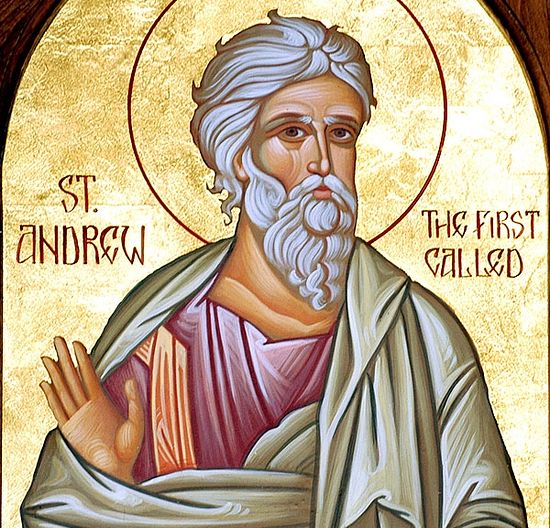 Commemorated on November 30/December 13
Commemorated on November 30/December 13
The Holy Apostle Andrew the First-Called was the first of the Apostles to follow Christ, and he later brought his own brother, the holy Apostle Peter, to Christ (John 1:35-42). The future apostle was from Bethsaida, and from his youth he turned with all his soul to God. He did not enter into marriage, and he worked with his brother as a fisherman. When the holy Prophet, Forerunner and Baptist John began to preach, Saint Andrew became his closest disciple. Saint John the Baptist himself sent to Christ his own two disciples, the future Apostles Andrew and John the Theologian, declaring Christ to be the Lamb of God.
Prophet Nahum
10. December 2017 - 22:16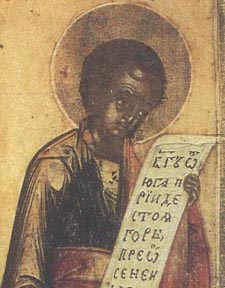 The Holy Prophet Nahum, whose name means “God consoles,” was from the village of Elkosh (Galilee). He lived during the seventh century B.C. The Prophet Naum prophesies the ruin of the Assyrian city of Nineveh because of its iniquity, the destruction of the Israelite kingdom, and the blasphemy of King Sennacherib against God. The Assyrian king Ashurbanipal died in 632 B.C., and over the next two decades, his empire began to crumble. Nineveh fell in 612 B.C.
The Holy Prophet Nahum, whose name means “God consoles,” was from the village of Elkosh (Galilee). He lived during the seventh century B.C. The Prophet Naum prophesies the ruin of the Assyrian city of Nineveh because of its iniquity, the destruction of the Israelite kingdom, and the blasphemy of King Sennacherib against God. The Assyrian king Ashurbanipal died in 632 B.C., and over the next two decades, his empire began to crumble. Nineveh fell in 612 B.C.
Nahum differs from most of the prophets in as much as he does not issue any call to repentance, nor does he denounce Israel for infidelity to God.

